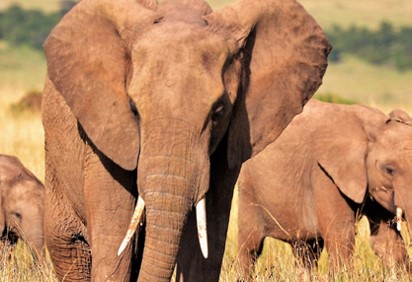Spotlight on COVID-19 and Africa’s protected area tourism

date: 02/07/2020
Tourism is an important income-generator in Africa, where the World Travel and Tourism Council (WTTC) has demonstrated that over a third of all direct tourism GDP in 2018 was attributed to wildlife. It is particularly important for many of Africa’s Least Developed Countries (LDCs). The global impacts of the coronavirus pandemic on the travel sector can thus expected to be felt keenly in these countries.
The European Union’s 'Wildlife economy: sustainable tourism in protected areas' initiative commissioned research to examine the impact of the COVID-19 pandemic. A preliminary analysis of the online survey results was conducted for 618 responses from operators working in 278 protected areas in 38 African countries, including 18 LDCs. The respondents included operators offering accommodation (58 %) tour operator services (52 %), activities and experiences (38 %), restaurant/bar services (14.2 %) and hunting (11 %).
Business operations: COVID-19 has led to a steep decline in business for operators in protected areas (on average 61 % fewer customers), coupled with a substantial drop in future booking requests (82 %, on average). Tourism operators require unemployment support for workers, financial support for recovery and cashflow, coupled with tax deductions or deferments.
Value chain impacts: Preliminary data suggests that there will be a 43 % decline in expenditure on local products, services and donations this financial year compared to last year, and if the crisis continues three-quarters of local employees will be affected with reduced wages/leave without pay/made redundant/unemployed (nearly 14 000 local employees just for this sample).
Implications for conservation: The pandemic has had mixed impacts on conservation and the environment. Fewer visits has also led to some increases in wildlife crime in areas usually protected by rangers and also the presence of visitors, but also some declines where the lockdowns have impeded the transport of people and wildlife products. Among survey respondents, expenditure on environmental services (e.g. for security, anti-poaching, park or concession fees, etc.) is predicted to decline by USD 20.7 million in the current financial year for the sample. There are concerns that illegal wildlife crime will increase as a result.
Responses to COVID-19 from governments and the tourism sector need to protect people (including visitors and tourism workers), ensure business survival along the tourism value chain and improve coordination mechanisms. They also need to re-consider our relationship with nature and wildlife, to prevent the emergence of zoonotic diseases in the future and safeguard all life on earth. This crisis has starkly demonstrated that the wildlife tourism sector is a major economic sector, benefiting both conservation and communities that depend on it.
Distribution of responses used in the preliminary analysis
Types of support needed by tourism operators
Value of financial support needed until tourism enterprises can support themselves again
This article is drawn from the EU policy paper by the author, COVID-19 and protected area tourism: A spotlight on impacts and options for Africa. The preliminary data can be accessed here.
The study was implemented by the Eurata Consortium. The contents are the sole responsibility of EURATA Consortium and can in no way be taken to reflect the views of the European Union.
